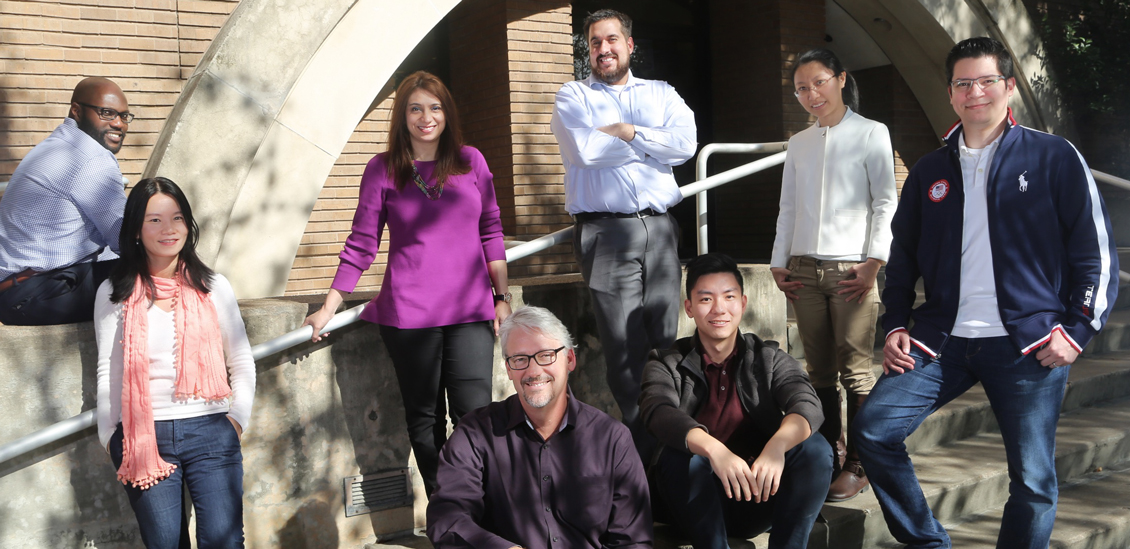Research News

Anticoagulant Optimization
Interdepartmental Collaboration Draws $207,000 Bristol-Myers Squibb/Pfizer Grant to Study Efficacy, Safety of Antiarrhythmic, Anticoagulant Therapies in Atrial Fibrillation
With a $207,000 grant co-funded by Bristol-Myers Squibb and Pfizer, a collaboration of clinical and health outcomes researchers at UH College of Pharmacy is launching a retrospective study on the efficacy and safety of anticoagulant therapy in conjunction with antiarrhythmic therapy in patients with non-valvular atrial fibrillation (NVAF).
Atrial fibrillation (Afib) is defined as an electrical disorder in the upper chamber (atria) of the heart that creates an irregular heartbeat (arrhythmia). Left untreated, Afib can lead to stroke, blood clots, heart failure and other cardiovascular-related complications.
According to the American Heart Association, at least 2.7 million Americans are living with Afib. Patients with Afib typically are treated with rate-control drugs and antiarrhythmia drugs (AADs) to regulate the heartbeat. Clinicians commonly prescribe anticoagulation agents (aka blood thinners) to prevent dangerous blood clots and stroke in Afib patients, whose risk of having a stroke is significantly higher than those with normal heart rhythm.
The only anticoagulant available for decades was warfarin, but several new agents – such as apixaban (brand name Eliquis) – have become available in recent years following FDA approval. While the newer agents have become more popular due to greater predictability in absorption and patient response, no real-world studies have addressed the efficacy and safety outcomes of Afib patients on both anticoagulant and anti-arrhythmic therapies.
Led by principal investigator Matthew A. Wanat, Pharm.D., BCPS, BCCCP, UHCOP Department of Pharmacy Practice and Translational Research clinical assistant professor and critical care pharmacy specialist, other members of the project team are UHCOP Pharmaceutical Health Outcomes and Policy faculty members Susan A. Abughosh, Ph.D., Hua Chen, M.D., Ph.D., Marc L. Fleming, Ph.D., MPH, R.Ph., and Michael L. Johnson, Ph.D.
"Approximately 2-3 percent of the adult U.S. population has Afib, and about 10-20 percent of those are on an antiarrhythmic drug," Wanat said. "One of the big questions is which anticoagulant should we use in treating Afib, as warfarin has potential interactions with some AADs. Our study will look at those who are on either warfarin or apixaban and an AAD and identify the associated outcomes, including events such as stroke, other bleeding outcomes and mortality."
The team will use the GE Centricity Electronic Medical Record, a database of 2.7 million patients from a range of practice settings, to extract de-identified records of relevance to the study criteria. Wanat estimates that the database will yield approximately 90,000 patients from a three-year period on both an anticoagulant and an antiarrhythmic drug.
"This is a great example of how our two disciplines can work together to answer a clinical question by performing statistical analyses on real-world data," Wanat said.
Wanat said the investigators expect to present their findings at major cardiovascular conferences later this year, followed by submission of manuscripts for publication by year's end.